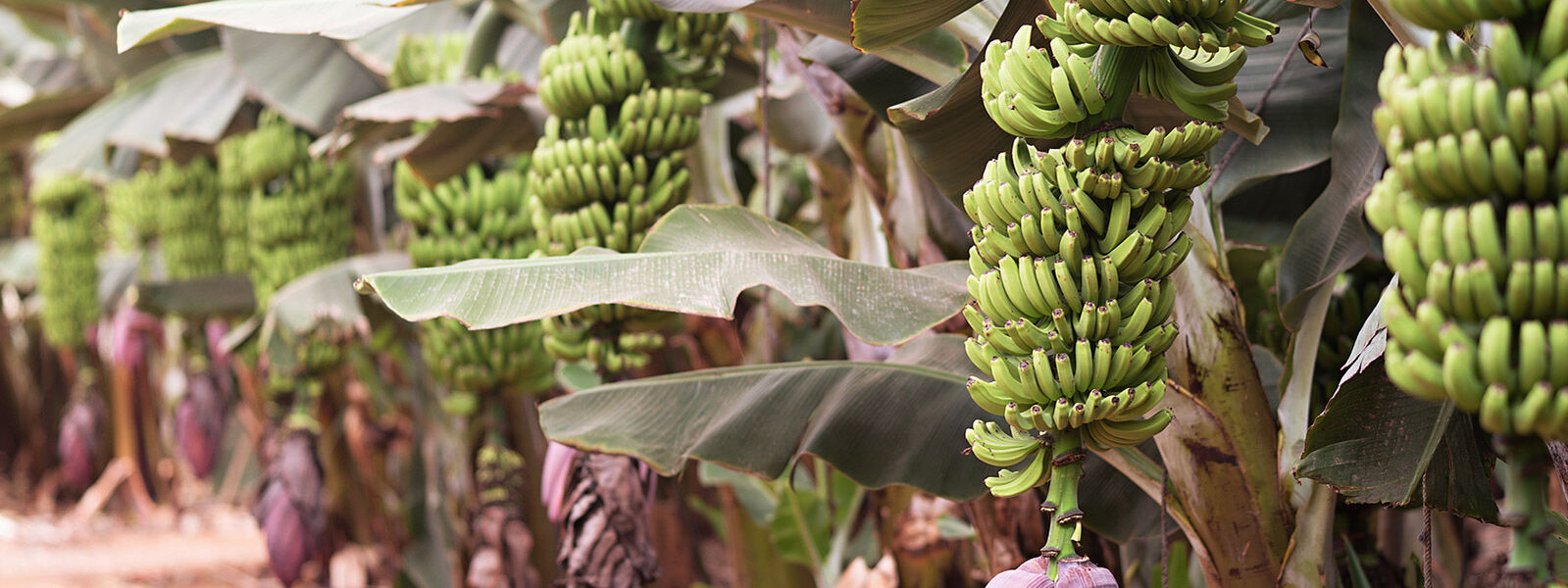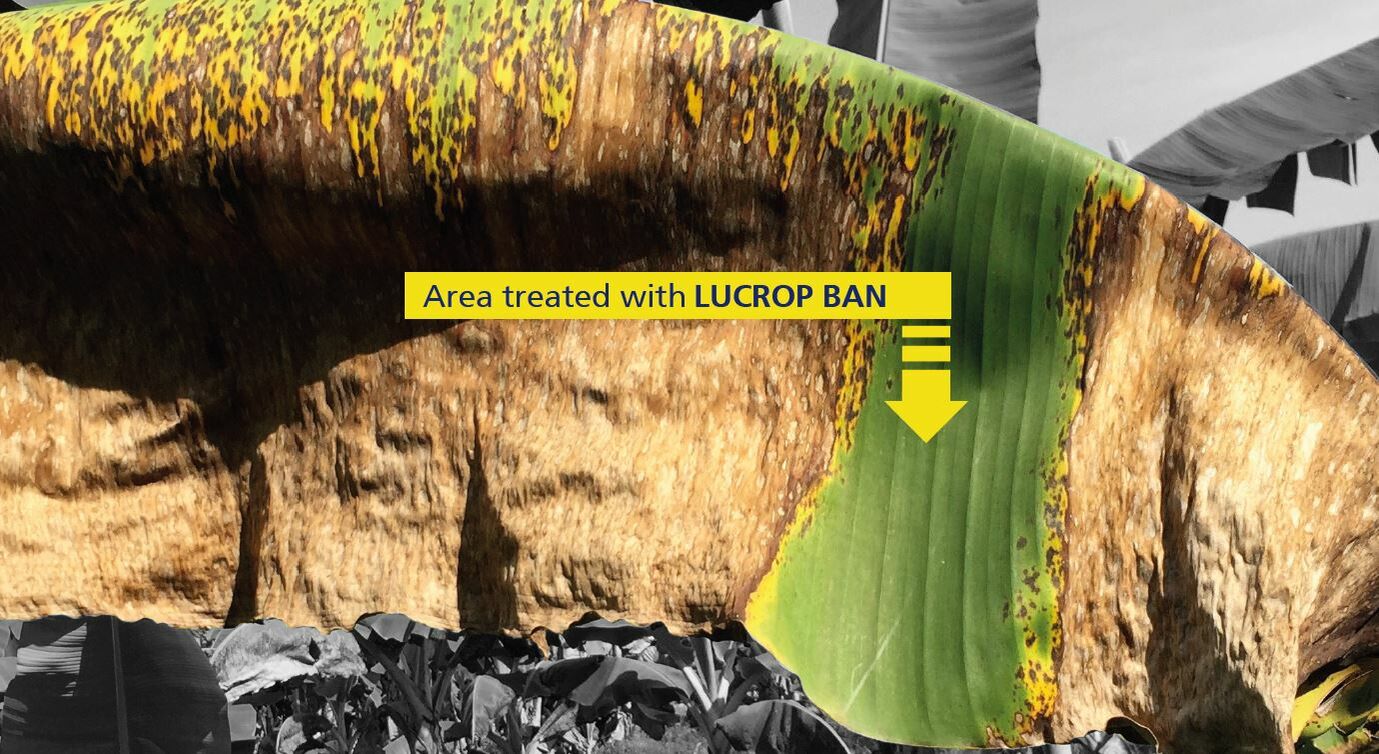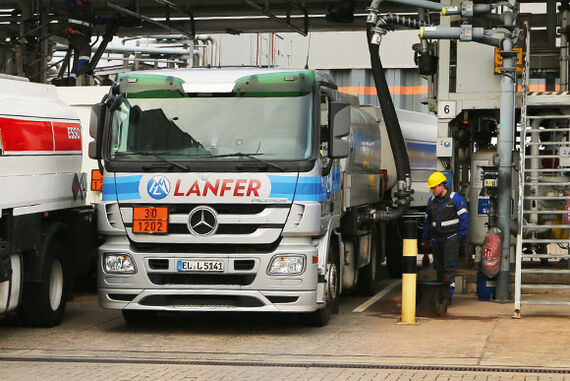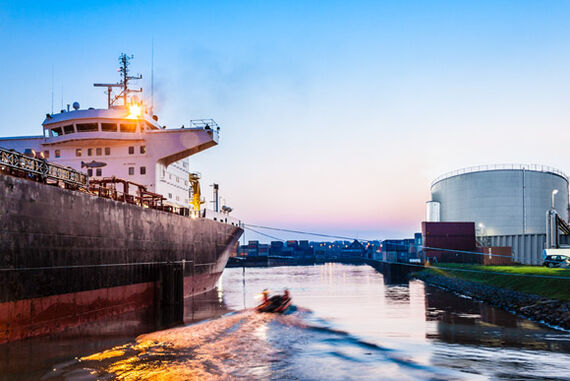Bananas are only cultivated under certain tropical conditions. The worldwide production of tropical fruits is intensively threatened due to monoculture and the associated susceptibility to diseases. Chemists at LEVACO Chemicals, a subsidiary of the DS Unternehmensgruppe, therefore developed an additive to ensure that crop protection products also work optimally in tropical rain.
A healthy breakfast is the perfect start to the day for many people in Germany. The coffee is steaming, toast and muesli are on the table. For many people, bananas sliced in yoghurt or muesli are an essential part of breakfast. In Germany, where for climatic reasons they are not grown, bananas are a key imported fruit, second only to apples as the most popular fruit. Statistically, every German eats around 12 kilograms of bananas per year. And demand for bananas is increasing on the world market due to the growing world population and rising living standards in the emerging markets.
Yet, the availability of bananas can no longer be taken for granted as they are now under threat. Bananas thrive in the warm and humid climate of the tropical growing regions. At the same time, this is the reason why continued cultivation of the fruit is in danger, as these conditions also provide an ideal climate for pests such as fungus.
In addition, monocultures, including the banana, are susceptible to pests and diseases. Monocultures are created by a common method of vegetative propagation of cultivated plants, which are therefore clones of existing plants. The cultivation of bananas as a monoculture on large plantations is customary. The cultivation of the banana began about 7,000 years ago. People crossbred different species and subspecies with each other and selected seedless, tasty but increasingly infertile diploid and triploid species. Currently, every second banana worldwide is descended from the genotype of the Cavendish banana. This triploid species reproduces vegetatively via clones, meaning that genes of each individual plant are identical.
Pests have adapted to this plant and now threaten to exterminate it. Bananas have no possibility to adapt optimally to changing environmental conditions.
Fungal infections cause banana plants to wither and die
Back in the 1960s, Gros Michel, the most frequently cultivated type of dessert banana at the time, was completely eradicated by the Panama disease, which was caused by tubular fungi. New strains of fungi such as the black sigatoka (Mycosphaerella fijiensis) and Fusarium oxysporum f. sp. cubense are currently posing a threat to global production. This particularly affects the banana variety known as Cavendish. Economically, it is the most important banana variety today as it is easy to transport and store - and achieves an optimum degree of ripeness at the time of sale. The fungus causes the Fusarium wilt, which is dreaded by farmers and causes infected plants to wither and die.
The Food and Agriculture Organization (FAO) of the United Nations has warned of a threat to the worldwide plantations of Cavendish bananas through fungal infections.
Fungal infections have multiple effects, impacting producers, domestic markets and exports. This is because it affects varieties for which there is local demand and which are basic staples in many regions, as well as the banana crops grown for export business. In order to strengthen banana farming, producers are therefore taking precautions and increasingly using fungicides to protect their plantations.
The use of pesticides is hampered by tropical rain and storms
Customarily, sprayer aircraft are used to spread fungicides and pesticides across large areas. However, this method doesn’t work for banana plantations.
The tropical climate complicates the conventional method of treating plants with spray mixtures as daily rainfalls and storms wash the chemicals off the plants.
LEVACO Chemicals GmbH, which belongs to the DS Group, therefore pursues a different, innovative approach. The company has developed an additive for the spray application of plant protection mixtures in banana plantations.
The product, called LUCROP® BAN, improves the adhesion of the crop protection agent to the perennial leaves and optimises its effectiveness.
The main exporters of bananas in 2017 were Ecuador, Costa Rica, Colombia, Honduras, Panama, Guatemala and the Philippines. As the world’s sixth largest banana producer, Ecuador has banana plantations covering an area of about 180,000 hectares. By comparison, the total area used in Germany for growing fruit comes to around 50,000 hectares. (Source: fao.org)
In 2017 the EU imported 5.8 million tonnes of bananas, the United States 4.8 million tonnes, Russia 1.5 million tonnes, China 1.1 million tonnes and Japan 985,000 tonnes. The EU is currently the main importer of bananas, although the share of exports going to China has widened steadily in recent years. (Source: fao.org)
The additive reduces fungal infection
The additive developed by LEVACO is a multifunctional product which ensures that a plant protection product is better distributed on the banana leaf, adheres longer and penetrates the leaf.
Practical tests and studies of tank mixes with the addition of LUCROP® BAN, show significantly improved control and combating of “Black Sigatoka”. All tank mixes and also the active ingredient adhere and penetrate better.
The additive has been approved by the German Federal Ministry of Consumer Protection and received the “Certificate of free sale” for use on bananas. LEVACO Chemicals GmbH has recently lodged applications for the issue of product approvals in banana-producing countries in Central America and Southeast Asia.
Biological studies with pesticides used in combination with LUCROP® BAN show a significant reduction of black sigatoka infections.
The additive ensures that the pesticide adheres even to difficult or moist leaf surfaces. The tank mixture then forms an oily layer on the leaves which contains the fungicide.
The additive has been approved by the German Federal Ministry of Consumer Protection and awarded the “Certificate of free sale” for use with bananas. LEVACO Chemicals GmbH has recently lodged applications for the issue of product approvals in banana-producing countries in Central America and Southeast Asia.
LUCROP® BAN offers many advantages for tank mixing and spraying applications. The stability of the spray mixtures and homogeneous distribution of the pesticides are ensured. The impact of unfavourable climatic conditions is reduced by LUCROP® BAN.
Why the DS Group is committed to developing effective crop protection
The more efficient use of crop protection products will enable farmers to continue to cultivate Cavendish bananas in the future. As a result, consumers, for example in Germany, will not have to give up their bananas in the future.




